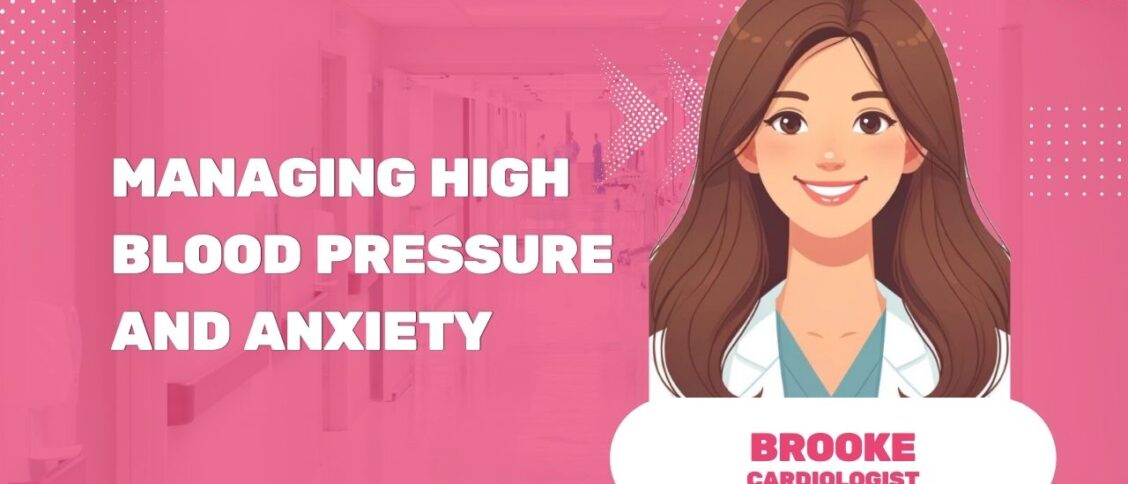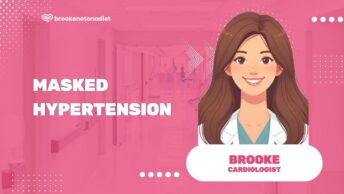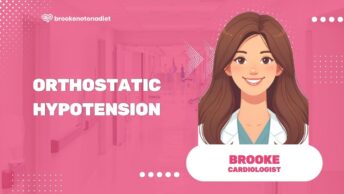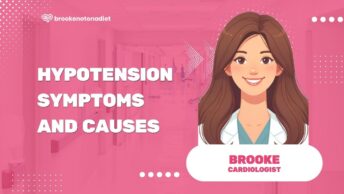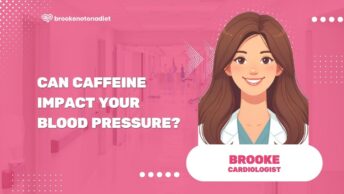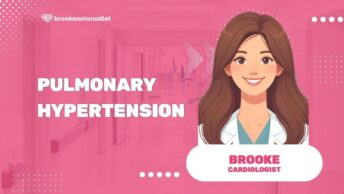It’s no secret that high blood pressure and anxiety often go hand-in-hand. I’ve seen it in countless cases, and if you’re here, you’re probably feeling the effects yourself.
This connection isn’t just anecdotal – there’s a wealth of scientific evidence linking these two conditions. But understanding why and how they’re connected can be a bit of a puzzle.
In this article, we’ll dive deep into the relationship between high blood pressure and anxiety. We’ll explore the science behind it, discuss the potential causes, and most importantly, provide practical tips to manage both conditions effectively. So, let’s get started.
What is High Blood Pressure?
Definition
In medical terms, high blood pressure – also known as hypertension – is defined as the force that blood applies on the walls of your arteries as it’s pumped from your heart. When that force remains elevated over an extended period, you’ve stepped into the ‘high blood pressure’ zone.
To make it straightforward, imagine a garden hose. If the water’s pressure inside the hose is too high for too long, it can damage the hose. Similarly, high blood pressure can damage your arteries and put captivating strain on your heart.
Health professionals keep track of blood pressure ranges using two numbers: systolic and diastolic pressure. You’ll often see it written as one number over another, like 120/80 mm Hg. The top number, the systolic pressure, measures the force on artery walls when your heart beats. The second number, diastolic pressure, is the pressure when your heart is at rest between beats.
Here’s a helpful blood pressure chart to visualize:
| Category | Systolic (top number) | Diastolic (bottom number) |
|---|---|---|
| Normal | Less than 120 | Less than 80 |
| Elevated | 120-129 | Less than 80 |
| High blood pressure (hypertension) stage 1 | 130-139 | 80-89 |
| High blood pressure (hypertension) stage 2 | 140 or higher | 90 or higher |
| Hypertensive crisis (seek immediate medical attention) | Higher than 180 | Higher than 120 |
Causes
High blood pressure’s often the result of several factors. Age, diet, physical activity, and genetics can all come into play. Sometimes, there’s no identifiable cause for high blood pressure. This type is known as primary, or essential, hypertension. However, for some, high blood pressure may be the result of another medical condition or medication – this is known as secondary hypertension.
Symptoms
Often, high blood pressure doesn’t show overt symptoms. That’s why it’s often nicknamed “the silent killer”. It’s common for people to unknowingly live with high blood pressure for years.
In those rare cases when symptoms do arise, they might include persistent headaches, difficulties breathing, irregular heartbeat, or fatigue. But remember, these symptoms generally surface when blood pressure readings are dangerously high, bordering on a hypertensive crisis.
That’s why it’s essential for everyone to keep tabs on their blood pressure using a reliable blood pressure monitor or having it checked by trained healthcare professionals. The importance of understanding blood pressure ranges and routinely checking blood pressure can’t be overstated. In the upcoming sections, I’ll get into the strategies for lowering blood pressure and managing it effectively. This knowledge is not only crucial for people at risk of high blood pressure but for all of us, as maintaining heart health is an integral part of overall wellbeing.
What is Anxiety?
As we delve deeper into understanding high blood pressure, it’s critical to broaden our view and consider factors such as anxiety. Let’s break down what anxiety is, its causes, and symptoms.
Definition
Anxiety, often seen as a health buzzword, is more than just general nervousness or worry. It’s a recognized medical condition involving intense, excessive, and persistent worry and fear about everyday situations. Anxiety disorders can cause people to avoid certain situations to prevent these feelings. Interestingly, the link between high blood pressure and anxiety isn’t quite straightforward. One might assume that heightened anxiety would increase blood pressure, but the relationship between the two can be complex.
Causes
Comprehending the factors triggering anxiety is crucial. Key contributors to anxiety include:
- Genetics: Just as with high blood pressure, anxiety disorders can run in families.
- Brain Chemistry: Abnormal levels of certain neurotransmitters in the brain can cause anxiety.
- Environmental Stress: Instances such as work pressure, financial strain, or traumatic events can lead to anxiety.
- Withdrawal from Illicit Substances: Abrupt cessation can cause a reactionary anxiety.
While increased anxiety might not directly cause your blood pressure ranges to leap, it’s certainly a factor in conditions that lead to hypertension.
Symptoms
Recognizing anxiety can be difficult because it manifests differently in everybody. However, some common signs include:
- Excessive worrying
- Feeling agitated
- Restlessness
- Fatigue
- Difficulty concentrating
- Irrational fears
These symptoms can make checking blood pressure a stressful event, which might inadvertently result in higher readings.
In addition to medication, lifestyle changes play a key role in managing both high blood pressure and anxiety. These might include regular exercise, a balanced diet, and lowered caffeine intake. Moreover, various resources, from a traditional blood pressure monitor to digital health apps, can assist in lowering blood pressure and controlling anxiety.
As we navigate through the complexities of high blood pressure and anxiety, let’s remember it’s about understanding these conditions to manage them better. Knowledge, vigilance, mindfulness – these are our tools. Our journey continues as we explore further intricacies, remedies and preventative measures. Stay tuned.
The Link between High Blood Pressure and Anxiety
Stress Response and Blood Pressure
Our body responds to any perceived threat by activating what’s known as the fight or flight response. This response triggers the release of stress hormones like adrenaline and cortisol. Both hormones increase heart rate and narrow our blood vessels. This action, in turn, boosts our blood pressure.
Usually, once the threat or stressor disappears, our heart rate and blood pressure return to their usual levels. However, with constant stress or prolonged anxiety, your body may remain in this heightened state leading to higher blood pressure.
The topic of ‘Blood Pressure Ranges’ is vital for a certain reason. Your blood pressure rate isn’t static; it fluctuates throughout the day based on a range of factors. This may involve emotions, physical activity, and even the time of the day.
Impact of Anxiety on Blood Pressure
We often undermine or dismiss anxiety as mere worry, but it’s a serious condition. Excessive anxiety can have provoking impacts on our health, including high blood pressure. This becomes problematic particularly when one’s anxiety is chronic, leading to persistent high blood pressure.
The constant agitation, fear, and restlessness of an anxious state can keep triggering our body’s stress response. This frequent activation inevitably overworks our cardiovascular system, leading to its weakening over time. As such, regularly checking your blood pressure at home with a blood pressure monitor can be crucial in managing your health.
Moreover, chronic anxiety can lead to unhealthy habits such as smoking, drinking alcohol, unhealthy eating, or lack of exercise. I’d stress that these habits, when coupled with the physiological changes brought about by chronic anxiety, can profoundly contribute to long-term hypertension.
However, take comfort in the fact that these are lifestyle habits one can modify. Lowering blood pressure isn’t an impossible challenge. Regular exercise, a balanced diet, reduced caffeine and alcohol intake, not smoking, and adequate sleep are some of the ways to combat both high blood pressure and anxiety.
Managing and Treating High Blood Pressure and Anxiety
Exploring optimal health solution, denotes to both lifestyle endeavors and medical measures. Striding towards healthier lifestyle for the sake of blood pressure control can significantly reduce dependency on medications while increasing the quality of life. Let’s delve and seek some understanding, highlighting the necessary actions under three sections.
Lifestyle Changes
An enhanced lifestyle is your first line of defense. Since both anxiety and high blood pressure can be influenced by lifestyle habits, it’s essential to take these steps:
- Regular Exercise: Consider getting at least 150 minutes of moderate exercise, or 75 minutes of vigorous exercise each week.
- Balanced Diet: Consuming a heart-healthy diet rich in fruits, vegetables, whole grains, lean proteins, and limiting saturated fats.
- Reduced Caffeine and Alcohol Intake: Caffeine and alcohol can spike your blood pressure, try to keep it moderate.
- Quit Smoking: Smoking increases the risk of high blood pressure and also anxieties.
- Adequate Sleep: A good night’s rest is crucial for your heart health, aim for at least 7-9 hours per night.
Remember to use a blood pressure monitor regularly for checking blood pressure, and take a note at a blood pressure chart to understand your blood pressure ranges.
Medications
Sometimes, lifestyle modifications aren’t just enough. Medical science has rendered us with many classes of medications for treating high blood pressure, such as diuretics, ACE inhibitors, calcium channel blockers, etc.
Moreover, anxiety may require treatment with medications like SSRIs, SNRIs, or benzodiazepines. It’s important to discuss with your healthcare provider who can suggest the right medication and ensure you’re lowering blood pressure appropriately.
Therapy and Counseling
Chronic anxiety might warrant professional help. Cognitive-behavioral therapy and various forms of counseling can evoke specific strategies to handle anxiety and reduce its effect on blood pressure. Techniques like mindfulness, breathing exercises, stress management, and relaxation strategies can be a potential help.
While medications can control the biochemical impact, therapy helps to combat the psychological side of this problem. Hence, the combination of lifestyle changes, therapy, and medication can yield effective control over high blood pressure and anxiety.
Tips for Controlling High Blood Pressure and Anxiety
Dealing with combined high blood pressure and anxiety can be a daunting task; however, proper understanding and management can significantly improve the condition. Here, I’ll delve into the effective strategies that work wonders in keeping both high blood pressure and anxiety under control.
Practice Stress Management Techniques
Research has shown a strong connection between stress and both high blood pressure and anxiety. Hence, it’s crucial to consider incorporating some stress management strategies:
- Mindful Meditation: Research suggests that mindful meditation can lower blood pressure levels and help alleviate anxiety symptoms. The goal here is to focus your attention and eliminate the stream of thoughts that may crowd your mind.
- Deep Breathing: Slow, deep breathing can help reduce blood pressure by relaxing narrowed blood vessels. It’s a simple yet effective stress-relieving technique.
Exercise Regularly
Regular exercise plays a pivotal role in maintaining a healthy blood pressure range. Various studies have shown that regular physical activity makes your heart stronger – a stronger heart can pump more blood with less effort, which in turn decreases the force on your arteries, hence lowering blood pressure.
In case you’re wondering where to start, here’s an exercise blueprint for you:
- Moderate-intensity cardio workouts: These can range from brisk walking, cycling, swimming, to dancing. Try doing these for 30 minutes daily.
- Strength training exercises: Incorporate these twice a week, it can effectively complement your cardio workouts and help in blood pressure management.
It’s always important to engage in exercises you enjoy- this keeps your motivation high, and it’ll be easier to incorporate exercise into your daily routine.
Eat a Healthy Diet
Adopting a heart-healthy diet plan plays a crucial role in lowering blood pressure and managing anxiety. Don’t worry, you’re not alone. I’m here to guide you through this:
- Eat more fruits and veggies: They’re packed with valuable fibers, essential vitamins and minerals. Try to incorporate a variety of these in your meals.
- Limit salt intake: High sodium intake can increase your blood pressure. Limiting it in your diet can help control your blood pressure.
- Stay Hydrated: Make sure to drink enough water, it’s crucial especially if you’re exercising regularly.
It might be overwhelming at first, but small, consistent changes in your dietary habits can yield a significant impact in the long run.
Get Enough Sleep
A good night’s sleep is a cornerstone of good health. Sleep helps your blood regulate stress hormones and helps your nervous system to remain healthy, both of which are key aspects in maintaining a healthy blood pressure. Aim for a good, undisturbed sleep of around 7-8 hours every night.
Make sure your sleep environment is conducive and supportive- a comfortable mattress, enough darkness, and a cool temperature can aid in your pursuit of quality sleep.
Remember, managing your blood pressure and anxiety isn’t just about one-time changes but about implementing long-term habits in your lifestyle. Every step you take towards healthy living counts. Stay patient and embrace the process, the outcomes will be worth it.
Conclusion
I’ve shared a wealth of knowledge on managing high blood pressure and anxiety. It’s clear that a well-rounded approach, including stress management techniques, regular exercise, and a heart-healthy diet, can make a significant difference. It’s not just about what you do during the day, but also about getting enough sleep at night. Remember, it’s the long-term lifestyle changes that truly count. So, don’t get discouraged if you don’t see immediate results. Stay committed, and over time, you’ll see improvements in both your blood pressure and anxiety levels. The journey to better health isn’t always easy, but it’s definitely worth it. Keep pushing forward and take control of your health today.

